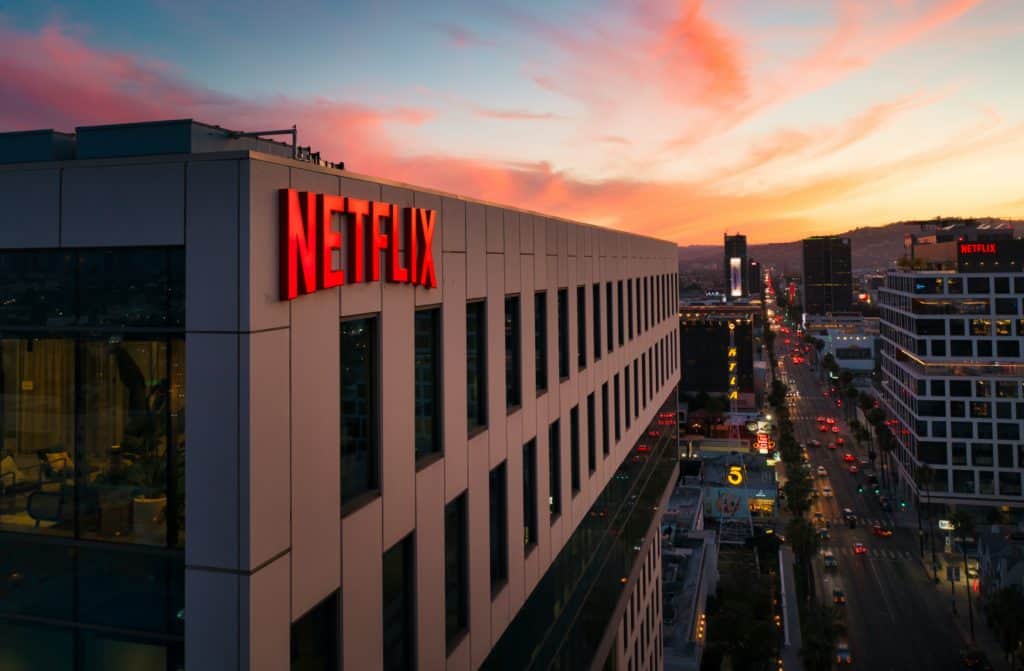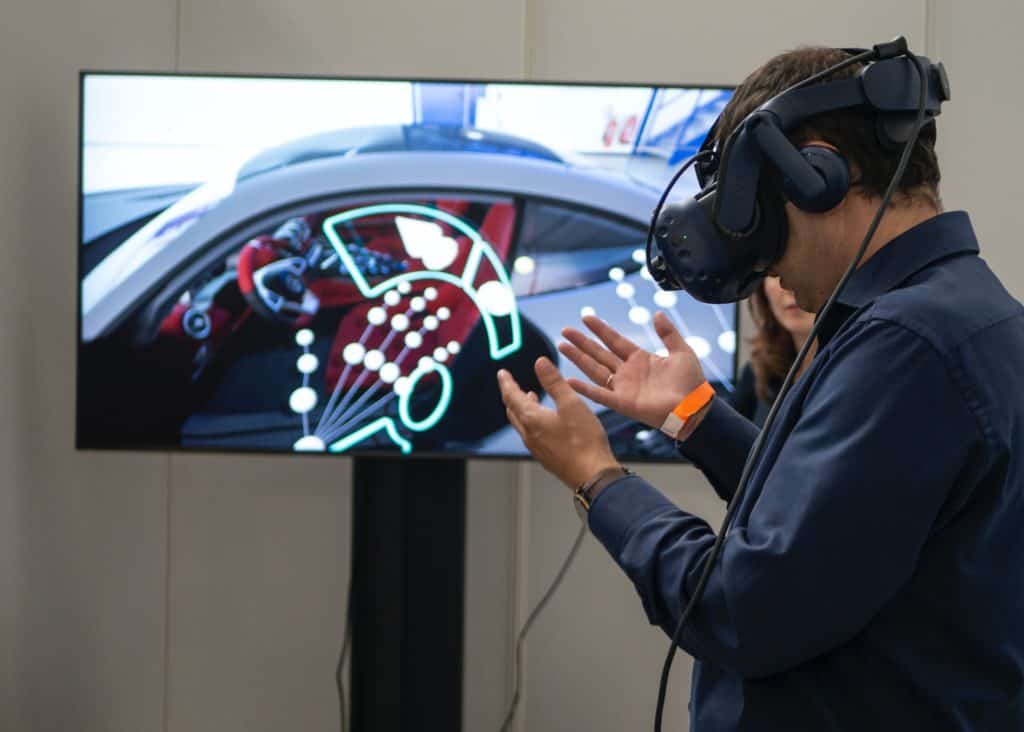
The Los Angeles Startup Scene
The Los Angeles entertainment startup scene is booming! With new startups appearing every day, the industry is evolving rapidly by embracing new technologies like virtual reality and video games. These startups are changing the way we consume entertainment, and they are quickly gaining popularity among Los Angeles locals and tourists alike.
This article will discuss the trends in digital media, video games, and virtual reality emerging from the Los Angeles entertainment startup scene.
The Silicon Valley vs. The City of Angels
From Silicon Valley to the city of angels, the entrepreneurial spirit is alive and thriving. In both locations, you’ll find a flourishing tech scene, with startups and investors eager to make their mark.
There are, however, some key differences between these two California hotspots. For starters, Silicon Valley is home to tech giants like Apple, Google, and Facebook, who thrive on a culture of innovation and risk-taking. In contrast, Los Angeles is home to traditional business giants, like movie studios and record labels.
Silicon Valley also focuses on hardware and software startups, while Los Angeles leads the creative and digital media pack.
Rising Trends in the LA Startup Scene
In 2022, the startup scene in Los Angeles is expected to grow significantly. This growth can be attributed to several factors, including increased funding, more experienced entrepreneurs, and a growing talent pool. Los Angeles has always been a hotbed for creativity and innovation, and the startup scene is no exception.
Here are some of the top startup trends in Los Angeles:
- Artificial intelligence and machine learning
- Virtual reality and augmented reality
- Blockchain technology is booming
- E-commerce companies are growing rapidly
- Food and beverage startups are on the rise
- Sustainability is more important than ever before
- Increase in the number of women-led startups
- Rising levels of diversification within the startup ecosystem
- There is an increase in social impact startups
- More startups are focused on sustainability
- Growing interest in health and wellness startups
These trends are expected to significantly impact the startup scene in Los Angeles and across the globe. With so much opportunity and potential, it’s no wonder that startups are flocking to Los Angeles.
Entertainment Startups
Entertainment startups in LA are experiencing shifts in technology and communication that impact how they create and distribute content.
The Entertainment industry is moving away from traditional TV models as viewers shift towards streaming services like Netflix and Hulu. This has led to a rise in original content production, as studios compete for exclusive rights to air shows online.
Types of Entertainment Startups & Companies
Many different entertainment companies within LA can be classified into a few different categories.
Production Company
Production companies that produce movies and TV shows, often leverage exclusive deals with streaming services like Netflix or Hulu to air their content online. Major Production companies in LA include Warner Bros., responsible for Charlie and the Chocolate Factory, respectively, and 20th Century Fox, responsible for the Simpsons.
These types of startups generally require large amounts of capital to get off the ground, as they need to finance the production costs of their projects.
Production Startup Trends to Watch
As the content we continue to watch shifts, production companies are starting to experiment with new technologies and distribution models.
Some of the trends in entertainment production we are seeing are:
- Increased use of virtual and augmented reality in movie and TV production
- More content being produced for streaming services like Netflix and Hulu
- Shifting away from traditional TV models
- Increased use of social media platforms to market and distribute content
The changing trends in entertainment production startups indicate a more significant trend happening in the industry.

Digital Marketing Startups
With the rise of streaming services, there has been a corresponding increase in the need for digital marketing startups. These companies help production businesses market and distribute their content online. They also help brands connect with consumers through social media and other online channels.
Some of the top digital marketing startups in LA include:
- Jukin Media: A viral video company that helps brands create and distribute content across social media
- Fullscreen: A digital marketing agency that works with major YouTube creators
- Maker Studios: A studio that produces original shows for YouTube
These types of startups are vital because they help connect businesses with consumers. As the entertainment landscape continues to shift, digital marketing startups will become even more critical.
Some of the top trends in digital marketing include:
- Increased use of social media to connect with consumers and build an online community
- Use of platforms like Snapchat and Instagram to reach a wider audience
- Creating original content to engage consumers
- Use of data to target consumers more effectively
Digital marketing is an essential aspect of any business, and as the entertainment industry continues to grow, as will the demand for digital marketing startups. Keep an eye on these trends if you’re looking to launch a startup in this space.
Animation Studios
Animation studios create animated movies and TV shows. The most prominent players in this space are Pixar (owned by Disney) and DreamWorks Animation, both based in LA. These startups generally require less capital than production companies, but more than digital marketing agencies.
Trends to watch for animation studios include:
Virtual Reality: Animation studios are starting to experiment with virtual reality by creating immersive experiences that allow viewers to enter the worlds they make.
Augmented Reality: Animation studios are also starting to experiment with augmented reality, which allows users to interact with digital objects in the real world.
Streaming Focused Content: Many animation studios are starting to produce streaming services like Netflix and Hulu. The global adoption rate for the streaming service industry has been growing steadily for over a decade.
The trend started with shows like Avatar: The Last Airbender and Legend of Korra, both initially produced for Nickelodeon but found new life and a larger audience on Netflix. However, it’s not just established studios making a move to streaming services. Newer companies are being founded with streaming services as their primary focus. One such company is Studio Mir, which produced The Legend of Korra and is now working on an original series for Netflix called Spirit Riding Free.
The reason for this shift is evident; streaming services have a global reach that traditional networks can’t match. They’re also not beholden to the same content restrictions, which gives creators more freedom to tell the stories they want to tell. With the ever-growing popularity of streaming services, we’ll likely see even more studios making the switch in the coming years.
Film Studios
Film studios are different from production companies in that they focus on the creation and technical aspects of moviemaking. Film studios are usually physical locations where movies are
filmed and often have many different sets that producers and directors can use for various purposes.
Major Film Studios in LA include Universal Studios Hollywood, responsible for movies like Back to The Future, and Paramount Pictures, responsible for Forrest Gump.
Like production companies, film studios also require a large amount of capital to get started; however, their costs are generally associated with constructing their physical studio space rather than the production costs of their projects.
Some notable players in the Los Angeles film studio startup space are:
Gunpowder & Sky: Gunpowder & Sky is a production company and film studio that focuses on creating short-form content for digital platforms like YouTube and Netflix. They have produced content for major brands like Barbie, Coca-Cola, and Samsung and films for festivals like Sundance and Tribeca.
Studio71: Studio71 is a production company and film studio that produces content for digital platforms like YouTube, Facebook, and Instagram. They have also produced traditional television shows like Lip Sync Battle Shorties on Nickelodeon.

Digital Media
Digital media companies create and distribute content through channels such as websites, social media platforms, or apps. These types of startups generally have a lower capital requirement to get started as they don’t need to finance the production costs of their content.
Some well-known Digital Media Companies in LA include BuzzFeed and Funny or Die. Digital media companies can be divided into two categories: publishers and creators.
Publishers create content distributed by other platforms while creators produce content specifically for their platform.
Video Game Developers
Video game developers are digital media companies that focus on developing and distributing video games. Major Video Game Developers in LA include Activision Blizzard, responsible for games like World of Warcraft, and Electronic Arts Inc. — responsible for games like Madden NFL.
Like digital media companies, video game developers generally have a lower capital requirement to get started as they don’t need to finance the production costs of their content.
Game developers just starting in LA should investigate joining an accelerator program. These programs provide funding, mentorship, and office space to help developers get their business off the ground.
Some notable Video Game-Specific accelerators in LA include:
The Game Academy: The Game Academy is a 12-week program that provides video game developers funding, mentorship, and office space.
Applicants must have a functioning prototype of their game before applying. -Applicants receive $20,000 in seed funding if accepted into the program.
Once accepted, developers work out of their downtown LA office and have access to a network of industry professionals.
Women In Games International Accelerator: Women in Games International Accelerator is for female-led game companies.
It provides $15,000 in seed funding and mentorship, and office space. The program is 12 weeks long, and applicants must have a functioning prototype of their game before applying.
The Goal of the Women in Games International Accelerator is to “support the development of innovative and commercially viable video games created by women.”
Maccelerator: Maccelerator is an LA-based accelerator for early-stage startups. Maccelerator has a highly selective admissions process, admitting only about ten percent of applicants.
The M Accelerator program is divided into two phases: the first focuses on customer development, and the second focuses on product development.
Startups validate their business model and build their minimum viable product during the customer development phase. This phase lasts for four weeks and culminates in a demo day where startups pitch to investors.
The product development phase lasts for eight weeks and is focused on building and launching the startup’s product. Startups in this phase receive mentorship from industry experts and have access to resources such as office space and funding.
Upon completion of the program, startups can join M Accelerator’s incubation program, which provides access to additional resources and funding.
Trends to watch for video game companies include:
- Micro-transactions are becoming more popular: In recent years, game companies have shifted from releasing complete games upon purchase to those requiring micro- transactions to get the whole experience. While this has been met with criticism by some gamers, it has become a very profitable business model for game companies.
- Games as a Service: More and more, game companies are adopting a Games as a Service (GaaS) model to release constantly updated games with new content rather than relying on sequels. This keeps players engaged for more extended periods while also generating more revenue.
- Rise of Indie Games: In recent years, there has been a rise in the popularity of indie games. These are games developed by smaller studios or individuals and often have more unique gameplay experiences than AAA titles.
- Esports Growing Rapidly: Esports is a rapidly growing industry with professional gamers competing in tournaments for large prize pools. This has led to game companies focusing more on creating games that gamers can play competitively at a professional level.
- Increased Focus on Live-streaming: Game companies are focusing on live-streaming as it allows players to interact directly with each other and create a community around their favorite games.
- Virtual Reality Gaining Traction: Virtual Reality (VR) has been around for a while, but it has only recently started to gain traction with the general public. This is primarily due to affordable VR headsets like the Oculus Rift and HTC Vive.
- Augmented Reality Taking Off: Augmented Reality (AR) is a technology that combines real-world surroundings with digital elements. AR has seen increasing adoption in recent years, most notably with the success of Pokémon GO.
- Free-to-Play Games Create Empires: Free-to-play games create empires for developers by giving players access to a large portion of the game for free and then charging for in- game items that improve or complete their experience. This has been arguably the most successful business model for mobile game companies.
- Console Gaming Supply Issues: Due to the Covid -19 pandemic, there has been a shortage of consoles and games as people are buying them up to stay entertained while stuck at home. This has led to most major console retailers struggling to keep up with demand.
- NFT Gamification: NFT Gamification has changed how gamers think about and interact with games. Instead of just playing the game for entertainment purposes, players can now earn rewards and valuable assets by participating in the game. This has led to a new era of gaming where players are more emotionally and financially invested in the game’s outcome.

Virtual Reality Developers
Virtual reality developers are entertainment startups that focus on creating virtual reality headsets. While virtual reality is still in its early stages, a few well-known VR developers have roots in LA, including Oculus VR and WEVR.
Virtual reality developers generally require a lower capital investment to get started as they don’t need to finance the production costs of their content. However, they require specialized software and hardware tools that can be expensive to purchase. In addition, VR developers often partner with larger companies that can provide funding and distribution for their projects.
Some notable projects in this space include:
– Oculus Rift: The Oculus Rift is a virtual reality headset developed by Oculus VR, a subsidiary of Facebook. The Rift allows users to experience virtual reality in a completely immersive way.
– WEVR: WEVR is an LA-based virtual reality studio that creates experiences for the HTC Vive and other VR platforms. One of their most notable projects is TheBlu, an underwater exploration game that has been downloaded over one million times.
– Google Cardboard: Google Cardboard is a low-cost virtual reality viewer that users can use with any smartphone. Cardboard apps are typically short and straightforward experiences that allow users to taste VR without investing in expensive hardware.
The future of Los Angeles VR Companies
Los Angeles VR Companies looks bright as the industry continues to grow and more people become interested in virtual reality. In addition, LA is home to several experienced VR
developers who can create high-quality content for various platforms. As technology adoption rates increase, it will be interesting to see how the VR landscape evolves in Los Angeles.
Los Angeles Entertainment Startups to Look Out For
According to bls.gov,
almost 18 out of every 1,000 workers in Los Angeles currently work in entertainment occupations,
resulting in the country’s highest concentration of entertainment workers.
1. MetaStage
MetaStage is an LA startup that focuses on creating content for virtual reality headsets. While virtual reality is still in its early stages, a few well-known VR developers have roots in LA, including Oculus VR and WEVR.
Virtual reality developers generally require a lower capital investment to get started as they don’t need to finance the production costs of their content.
2. PlayVS
PlayVs is a Los Angeles-based startup tackling the world of competitive video gaming, also known as esports. The company has raised $15 million in seed funding and is led by CEO Delane Parnell.
Parnell is a former professional gamer and has assembled a team with experience in the esports industry.
The company’s goal is to make esports more accessible to everyday people by removing barriers that often prevent people from playing competitively.
One way in which PlayVS plans to do this is by hosting tournaments in high schools across the country. This will provide students with an opportunity to compete against others their age and potentially pave the way for a future career in esports.
3. Blavity
Blavity is a media company that creates content for and by black millennials. The company was
founded in 2014 by CEO Aaron Samuels and President Janell Stephens.
Blavity’s mission is to empower black millennials by giving them a platform to tell their stories. The company has raised $11 million in funding to date. Its content has been featured on networks such as CNN, MSNBC, and BET.
Blavity’s team comprises talented writers, editors, and creatives from all over the country. The company plans to use its latest round of funding to expand its content offerings and build out its team.
1. Mythical
Mythical Games was founded by CTO John Linden and CEO James Ferguson. The team comprises experienced game developers who have worked on AAA titles like Call of Duty and Destiny.
The studio’s first game, Blankos Block Party, is currently in closed beta. In Blankos Block Party, players can collect and play with over 100 different NFT based characters, each unique ability.
2. Genies
Genies is an NFT marketplace and decentralized application (dApp) that enables users to buy, sell or rent Genies using Ethereum-based smart contracts. The dApp also includes a built-in exchange for swapping Genies with other NFTs.
Genies was created by Justin Sunerok, co-founder of Decentraland and creator of the popular peer-to-peer file-sharing protocol BitTorrent. Super ok is also an advisor to the TRON Foundation.
The team behind Genies includes experienced developers from companies such as Google, Facebook, and Apple. The dApp is currently in beta and is available to anyone with an Ethereum wallet.
The Genies marketplace is powered by the ERC-1155 standard, which enables the creation of non-fungible tokens (NFTs) that represent uniquely digitized assets. ERC-1155 was developed by Enjin co-founder Witek Radomski to allow users to engage in the minting, burning, and transferring of NFTs on the Ethereum blockchain.

What’s Next for Entertainment Startups?
It is difficult to predict the future of entertainment startups. An entertainment startup or company is only as good as the content/tech they are publishing. However, there are a few things that we can expect moving forward into 2022.
- Video content will continue to be popular. This is because videos are easy to consume, allowing people to engage with content more interactively.
- Second, augmented reality will become more popular. This is because AR allows users to interact with digital content more immersive.
- Third, social media platforms will continue to grow in popularity. Social media platforms allow users to share content and connect with others more informally.
- Finally, virtual reality will continue to grow in popularity. This is because VR allows users to immerse themselves in digital environments and experience them as if they were real.
By focusing on and creating platforms that allow users to share content and connect with others, Entertainment Startups in LA have made and will continue to make groundbreaking progress.
Final Thoughts
The Los Angeles entertainment scene is constantly changing and evolving.
By focusing on creating platforms that allow users to share content and connect with others, entertainment startups in LA have made and will continue to make groundbreaking progress.
What are your thoughts on the future of entertainment startups? Let us know in the comments below!



